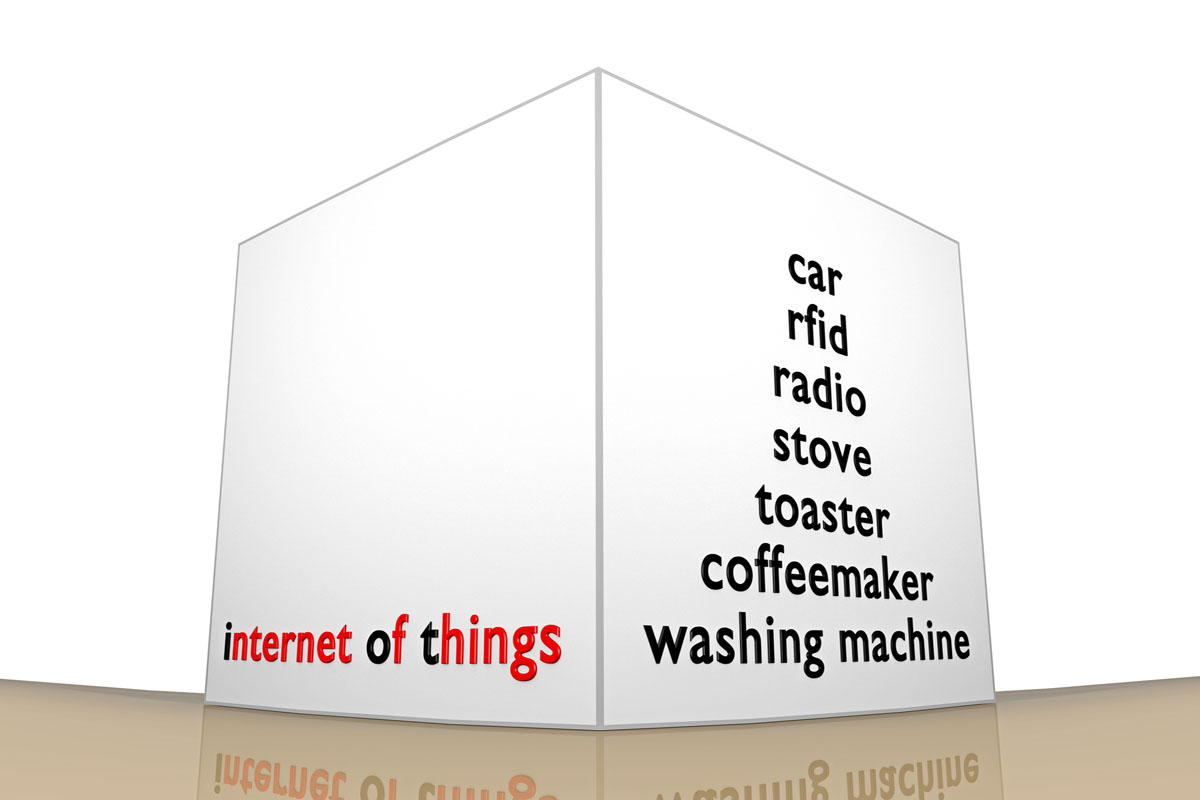Forget fridges: spend the £40m for IoT in a smart way
The government is investing £40m in the IoT. Nicole Kobie tells the chancellor how to spend it


OPINION: 40 million is a lot to spend on smart fridges.
Chancellor George Osborne said his government will set aside the slice of cash in its last budget before the election to spur the Internet of Things industry in the UK.
"We will also invest in the Internet of Things," Osborne said as he announced the budget, going on to take a dig at Labour leader Ed Miliband's two kitchens. "This is the next stage of the information revolution, connecting up everything from urban transport to medical devices to household appliances. So should, using a completely ridiculous example, someone have two kitchens, they will be able to control both fridges from the mobile phone."
While 40 million might sound a lot for those of us with just one kitchen, but Cisco expects the IoT industry to be worth 100 billion over the next ten years, so encouraging growth looks likely to lead to a solid return on investment. But because there's so much money flowing into this latest tech buzzword, the government needn't use the contents of its coffers to spur development it should be more precise and encourage R&D in the right areas.
To start, security and standards. Yes, it sounds dull, but getting both right now will save millions of pounds of effort in the future. Many IoT projects are small, one-off pieces of hardware, and developers aren't spending enough time and effort building in security from the start.
We're still patching problems in the web because not enough attention was paid to security at the outset no wonder, given no-one knew how successful and important it would become but we're investing this 40 million believing this is the next revolution. This is our chance for the IoT to be secure by design: chuck some of that cash into a pot for security development, such as the BuildItSecure.ly project that offers expert advice to IoT projects to boost protection for users.
Standards are another area that should get funding. There's several competing standards for IoT, and it's impossible to say which will become the most popular, but the government has already backed the UK-led HyperCat. It has already received 6.4 million in funding, but is up against standards from companies such as Samsung and Google. Let's give it a chance to compete by boosting its development.
Get the ITPro daily newsletter
Sign up today and you will receive a free copy of our Future Focus 2025 report - the leading guidance on AI, cybersecurity and other IT challenges as per 700+ senior executives
If those two areas get a funding boost, it will benefit everyone in IoT, but some of that cash should also be spent giving a leg up to UK startups. While much of the attention is on consumer gadgets, the government should use its spending power to boost IoT projects that will do more than track our runs, personalise our lighting or reorder milk.
While gimmicks like that are fun, they don't have the potential knock-on benefits of industrial IoT. At last week's RE.WORK Internet of Things Summit, Raphael Scheps of startup Converge showed off sensors that help judge if concrete has set. It's less sexy than consumer products, but has real value major building projects have to wait for concrete to set before continuing work, and speeding that along can save huge amounts of cash when staff for every day cost millions of pounds.
And that's just boosting the economy. If spent with care, this IoT funding could help solve other problems facing the UK. Smart medical devices could help alleviate the looming health-care crunch, sensors could boost agricultural production while cutting water use, and connected cars and lorries could reduce traffic and carbon emissions.
The IoT is the next revolution, but there's so much more than boosting the economy or getting out in front of US tech giants. This 40 million is a chance to push the UK's IoT industry in the right direction but only if it's spent in a smart way.
Freelance journalist Nicole Kobie first started writing for ITPro in 2007, with bylines in New Scientist, Wired, PC Pro and many more.
Nicole the author of a book about the history of technology, The Long History of the Future.
-
 Should AI PCs be part of your next hardware refresh?
Should AI PCs be part of your next hardware refresh?AI PCs are fast becoming a business staple and a surefire way to future-proof your business
By Bobby Hellard
-
 Westcon-Comstor and Vectra AI launch brace of new channel initiatives
Westcon-Comstor and Vectra AI launch brace of new channel initiativesNews Westcon-Comstor and Vectra AI have announced the launch of two new channel growth initiatives focused on the managed security service provider (MSSP) space and AWS Marketplace.
By Daniel Todd
-
 Starmer bets big on AI to unlock public sector savings
Starmer bets big on AI to unlock public sector savingsNews AI adoption could be a major boon for the UK and save taxpayers billions, according to prime minister Keir Starmer.
By George Fitzmaurice
-
 UK government targets ‘startup’ mindset in AI funding overhaul
UK government targets ‘startup’ mindset in AI funding overhaulNews Public sector AI funding will be overhauled in the UK in a bid to simplify processes and push more projects into development.
By George Fitzmaurice
-
 UK government signs up Anthropic to improve public services
UK government signs up Anthropic to improve public servicesNews The UK government has signed a memorandum of understanding with Anthropic to explore how the company's Claude AI assistant could be used to improve access to public services.
By Emma Woollacott
-
 US government urged to overhaul outdated technology
US government urged to overhaul outdated technologyNews A review from the US Government Accountability Office (GAO) has found legacy technology and outdated IT systems are negatively impacting efficiency.
By George Fitzmaurice
-
 Government urged to improve tech procurement practices
Government urged to improve tech procurement practicesNews The National Audit Office highlighted wasted money and a lack of progress on major digital transformation programmes
By Emma Woollacott
-
 Government says new data bill will free up millions of hours of public sector time
Government says new data bill will free up millions of hours of public sector timeNews The UK government is proposing new data laws it says could free up millions of hours of police and NHS time every year and boost the UK economy by £10 billion.
By Emma Woollacott
-
 Three giant tech challenges the UK’s new government faces right now
Three giant tech challenges the UK’s new government faces right nowOpinion Five years starts now, and there’s not a second to waste
By Steve Ranger
-
 G-Cloud 13: UK government 'inhibiting' cloud SMEs' ability to adapt to harsher business landscape
G-Cloud 13: UK government 'inhibiting' cloud SMEs' ability to adapt to harsher business landscapeNews Suppliers on the cloud services portal have hit out at an extension to the current iteration of G-Cloud
By Ross Kelly